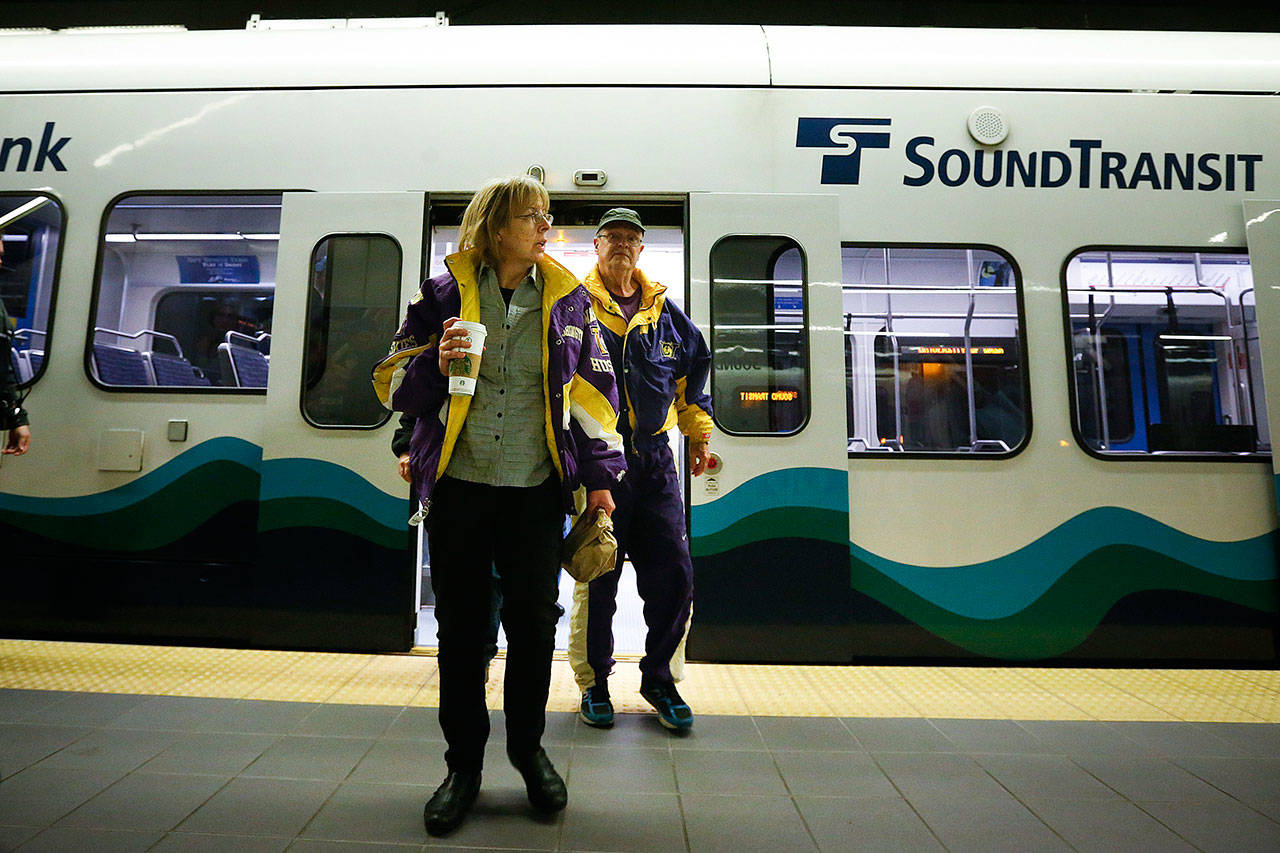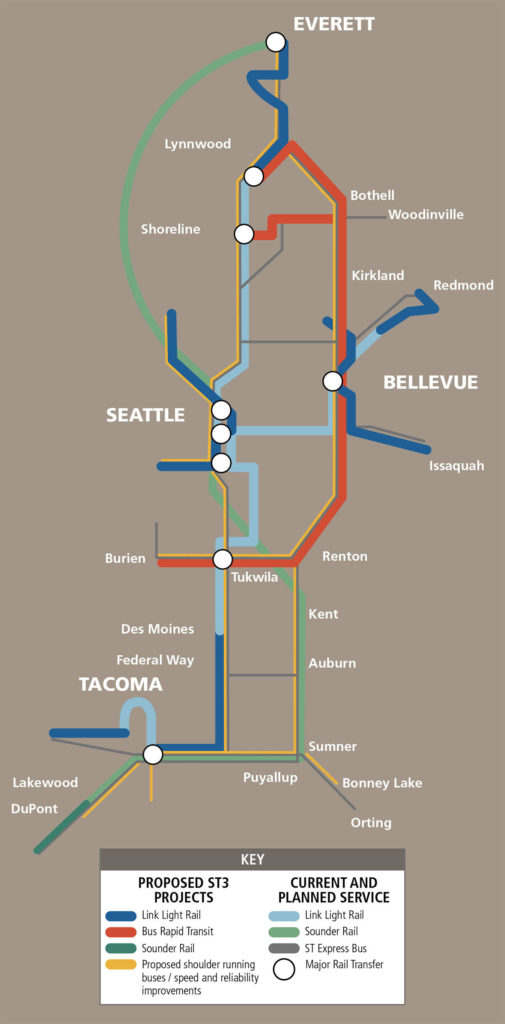By The Herald Editorial Board
Despite sour comments from the plaintiffs, the decision last week by a Pierce County Superior Court judge to dismiss a class-action lawsuit that sought to strip Sound Transit of revenue from vehicle license fees should not have been a surprise.
And the decision leaves the next step with state lawmakers, where it belongs.
Seven residents from the Sound Transit’s three-county region, filed suit in June, seeking to eliminate the second-largest source of revenue from the transit agency’s ST3 project, which voters passed in 2016. Voters authorized a package of tax increases to complete the Link light-rail system by adding 62 miles of new line, including an extension to Everett Station by 2036 via the Paine Field industrial area. Other new light-rail destinations planned in ST3 include Tacoma, Ballard, West Seattle, downtown Redmond, south Kirkland and Issaquah.
Voters approved an increase in the car tab tax from 0.3 percent to 1.1 percent of a vehicle’s value, along with an increase in the sales tax of 50 cents for a $100 purchase and a 25-cent increase in the property tax for every $1,000 of assessed value.
The plaintiffs argued that the 2015 law passed by the Legislature in 2015 used an outdated formula for calculating the tax for vehicle license tabs. Along with ending that revenue stream, the lawsuit sought a refund to taxpayers of $400 million collected thus far.
Critics have argued that lawmakers and voters were duped by Sound Transit and its supporters into supporting the tax increase. A major target for that criticism has been the vehicle depreciation schedule used to assess the car tab fees. Lawmakers passed a law that does use a formula the state replaced in 2006 that assumes higher values for vehicles than the state now uses.
Still, neither lawmakers nor voters should have felt misled. An amendment to the law that would have replaced the older depreciation schedule was considered but rejected by lawmakers. And Sound Transit didn’t attempt to hide the extent of the tax increase, encouraging voters to use an online calculator that showed what the increases would mean for individuals and families. As well, media reports estimated what voters could expect if the tax increases were approved.
Prior to the judge’s decision last week to toss the lawsuit, the state’s Public Disclosure Commission considered similar allegations in 2017 and found no evidence of an attempt to deceive lawmakers. And state Senate transportation committee hearings that same year managed mostly protests couched as questions rather than showing any evidence of wrong-doing.
Judge Kathryn Nelson’s prompt dismissal of the lawsuit should be taken as an indication of the lack of merit behind the allegation that lawmakers or voters were blindsided.
Mukilteo initiative promoter Tim Eyman, who campaigned against the ballot measure but wasn’t put of the lawsuit, couldn’t resist a swipe at the judge: “What I think happened is the judge chickened out,” he said following the ruling.
There’s simply no justification — and no place — for Eyman to accuse a judge of basing a decision on a political consideration.
The plaintiffs, or course, are welcome to appeal. And Eyman can continue to collect signatures for his latest initiative, again aimed at lowering car tabs to the magical $30 limit.
But the real work is up to lawmakers.
While voters had the opportunity to cast ballots for or against ST3 with full knowledge of what it meant for their taxes, many still expressed surprise when they received their license renewal statements in the mail earlier this year. That sticker shock will continue each month for the rest of the year as new renewals go out.
It should be expected that responsive state lawmakers would take up the issue and consider ways to reduce the car-tab portion of the tax package. And for the sake of Sound Transit and ST3, an adjustment to the tax package can show that it and lawmakers understand that this is a significant request of taxpayers.
But the concern that tripped up a fix this year in the Legislature, even when Democrats controlled both House and Senate, was that any revenue lost in reducing the tax — as much as $780 million in the next few years — had to be be made up elsewhere. A hit that large to ST3 funding can’t be easily absorbed.
As it is, Everett will wait another 18 years for light rail to arrive at Everett Station. A loss of funding threatens further delays if not unacceptable adjustments to the project itself.
Voters don’t increase taxes on themselves on a lark. Less than two years after the vote, their support for ST3 should be honored.
Correction: An earlier version of this editorial misstated Tim Eyman’s connection to the lawsuit. Eyman campaigned against ST3, but was not a plaintiff in the suit.
Talk to us
> Give us your news tips.
> Send us a letter to the editor.
> More Herald contact information.


























